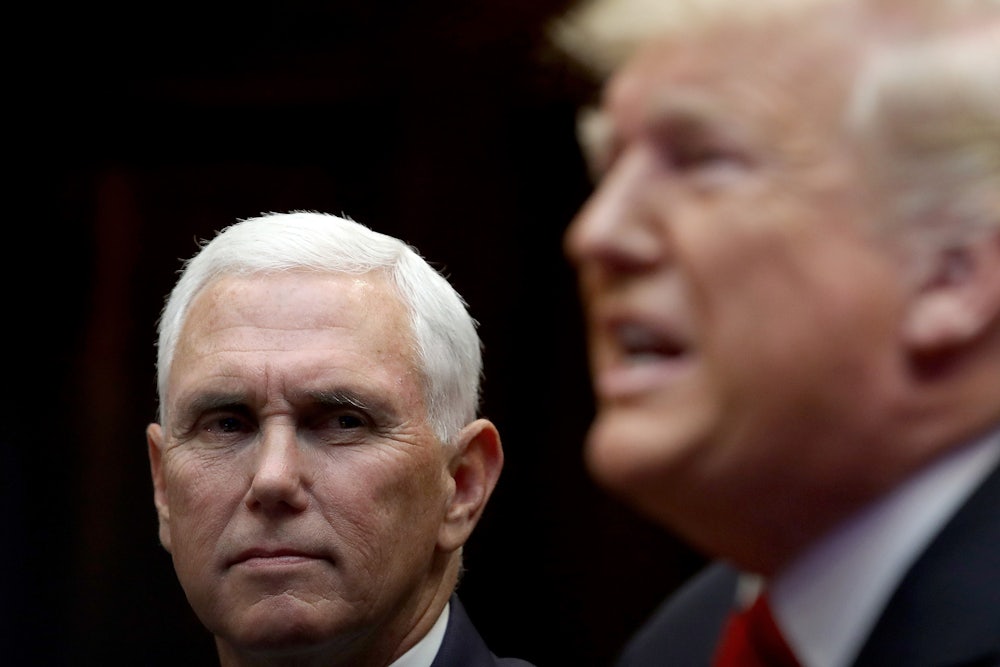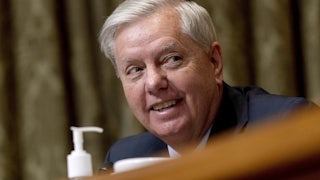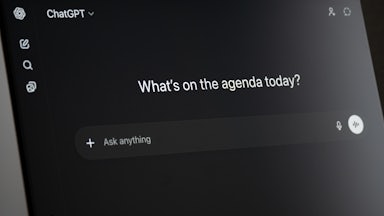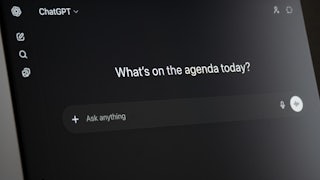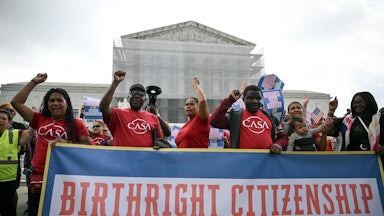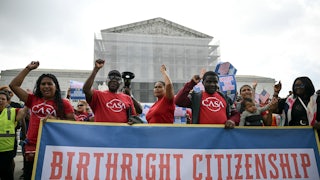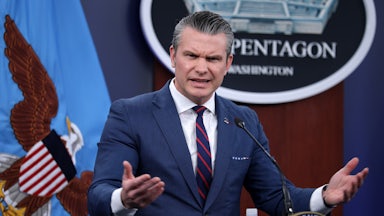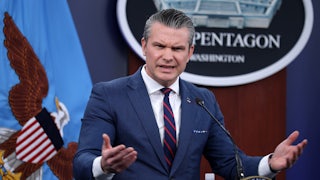Here’s what happened this week
The Washington Post published a bombshell story about a December 2020 memo laying out how Donald Trump could try to use the National Security Agency and the Department of Defense to search communications records in an attempt to prove that foreign powers had tried to help President Biden win the 2020 election. Copies of the memo were circulated among Trump allies and some Republican senators. Trump, in the end, didn’t follow the memo’s recommendations. The memo’s existence underscores both the extreme lengths Trump and his allies considered to overturn the election and how little the public knows today about those efforts.
What is clear is that there were multiple memos floating around Trump circles with all kinds of outlandish proposals to try and help the former president retain power. The New York Times published its own story on a different memo laying out how Trump would set up his own slate of electors to propel him to reelection. Fourteen “alternate electors” were subpoenaed by the January 6 select committee last week.
The committee is undoubtedly going to give the memos and circumstances around them a high level of scrutiny. Right now, the panel is examining Trump’s connections to plans to seize voting machines, the Times reported this past week. That part of the committee’s investigation is partially based on documents from the Trump White House. Documents like that are invaluable to the committee’s work (partially because they weren’t ripped up by Trump himself beyond any reconstruction). The National Archives is also planning on handing over more documents to the committee, this time related to former Vice President Mike Pence and January 6. It stands to reason that these papers could tell the committee—and eventually us—something about who lobbied Pence not to certify the electors.
The committee has also had some success in interviewing people of interest. Months after having been found in contempt of Congress for refusing to cooperate with the committee, former Justice Department official Jeffrey Clark met with the committee for multiple hours on Wednesday. Clark drafted a letter in December 2020, which he asked acting Attorney General Jeffrey Rosen to sign, to officials in the state of Georgia suggesting that the state name a new slate of electors (Rosen refused). Clark did more than that, too, and the committee surely had many interesting questions for him. The leader of the hard-right Oath Keepers militia also talked with the January 6 committee for six hours. Stewart Rhodes, who is being held in a federal detention facility on sedition charges, is widely believed to have had a hand in orchestrating the violence at the Capitol (he pleaded not guilty to the charges).
No one should forget the deadly backdrop of the investigation or the ongoing dangers to investigators. On January 6, 2021, Kamala Harris was just a few yards away from a pipe bomb planted at the Democratic National Committee headquarters.
And in Georgia, the Fulton County prosecutor investigating Trump for allegedly trying to influence Georgia election officials to change the course of the election has asked the FBI to conduct a risk assessment of the county courthouse in Atlanta. The request for assistance from the FBI comes after “alarming” rhetoric from Trump himself. At a recent rally in Texas, Trump said, “If these radical, vicious, racist prosecutors do anything wrong or illegal, I hope we are going to have in this country the biggest protests we have ever had in Washington, D.C., in New York, in Atlanta, and elsewhere, because our country and our elections are corrupt.”
Here’s what may come next
The committee is inching closer to calling former Vice President Mike Pence as a witness. Representative Pete Aguilar, a member of the committee, said in an interview with CNN this week that they were “trying to be deliberate and thoughtful” in asking Pence to testify.
“We are making significant progress with or without that testimony,” he said. “We’re not rushing to any, any decisions here. We are being respectful of the office. We’re trying to get testimony from individuals who were around the former vice president.”
Aguilar also said that the committee was still going through the mound of documents it received from the National Archives. “Obviously, in any interview we want to do, we want to be prepared. And that means we have to process the documents and get prepared for that witness,” he said.
What they did this week
Instead of appearing before the committee, Rudy Giuliani faced scrutiny from a different panel. According to Deadline, Giuliani was unmasked as a costumed contestant for the upcoming season of The Masked Singer. Upon his reveal, two of the judges for the contest—Ken Jeong and Robin Thicke—walked off the stage in protest. Giuliani was subpoenaed by the January 6 committee last month; it’s unclear whether he will have appeared before them by the time his exit episode airs in March.
Meanwhile, instead of handing in their phone records after being subpoenaed, two so-called alternate electors sued the committee. Arizona GOP chair Kelli Ward and her husband, Michael Ward, who had served on an illegitimate slate of electors falsely declaring that Trump won their states, argued in a court filing that the committee should be prevented from obtaining their phone records because they are both doctors.
Best quote of the week on January 6
“Lindsey Graham’s wrong. I mean, Lindsey’s a nice guy, but he’s a RINO,” Trump said in an interview with Newsmax, speaking about Senator Lindsey Graham, who had said on Sunday that he would not support pardoning those convicted of participating in the insurrection. Graham has been one of Trump’s staunchest allies in the Senate.
